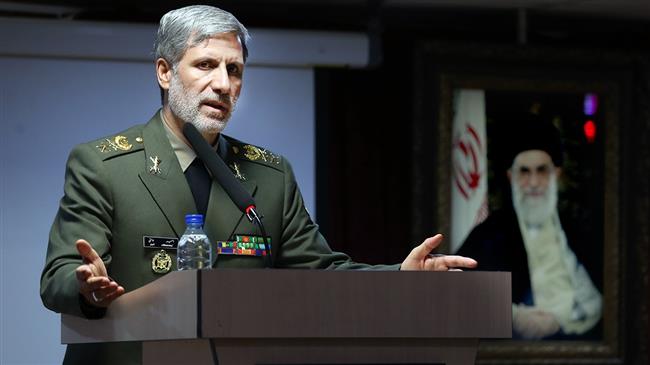Hatami made the remarks in a message on the occasion of the 31st anniversary of a deadly chemical attack by executed Iraqi dictator Saddam Hussein on the Iranian city of Sardasht in West Azarbaijan Province during the Iraqi-imposed war.
“The occupying Zionist regime is a threat to international peace and security with regard to its possession of a huge stockpile of banned chemical, biological and nuclear weapons,” he said.
He added that the deadly chemical attack on Sardasht was carried out at a time when the United States, which has been claiming to advocate human rights, had vetoed efforts by a majority of the United Nations Security Council to issue a statement in condemnation of the use of chemical weapons by the Iraqi government.
Sardasht was the third most populated city in the world, after Japan’s Hiroshima and Nagasaki, to be deliberately targeted with weapons of mass destruction. It was also the first city in the world to be attacked with poisonous gas.
The actual death toll is far greater than announced. Nearly 5,000 residents of the city, which had a population of 20,000 at the time of the attack, are still suffering from serious respiratory and skin ailments and disorders.
Iraq once possessed a huge arsenal of chemical weapons, the production of which was partly facilitated by exports of chemicals from the United States and Western countries.
The Iranian defense minister further said two decades after the establishment of the Organization for the Prohibition of Chemical Weapons (OPCW), the region is still facing threats to security and peace.
Hatami added that the US has violated international law and regulations of the Security Council and the OPCW and conducted a military attack on Syria under the pretext of the Arab country’s use of chemical weapons that led to the creation of more insecurity in the West Asia region.
“This incident will definitely cause new serious threats and challenges to the future of the Organization for the Prohibition of Chemical Weapons,” the Iranian defense chief pointed out.
He pointed to the support by certain Western and Arab countries and the Israeli regime for terrorist groups and their collusion with the extremists and warned against the formation of organized chemical terrorism in West Asia.
Hatami criticized the change of approaches and main priorities of the OPCW, particularly its politicization, and said transforming a disarmament organization into a security and political body would lead to its lack of independence in dealing with Western states.
Israel, which has a long history of waging wars and occupying sovereign states, has been trying to portray Iran, which has not attacked any nation for hundreds of years, as a threat to world peace.
In a meeting with OPCW Director General Ahmet Üzümcü in Tehran in July 2017, Iranian Foreign Minister Mohammad Javad Zarif said the Islamic Republic, as per its core principles, opposes the use of chemical weapons in any form and by any group.
“The Islamic Republic of Iran has always emphasized that no group has the right to use chemical weapons in armed conflicts,” Iran’s top diplomat said, adding, “However, the Daesh terrorist group has used chemical weapons in its war against the Syrian government.”
In a message on July 1, 2017, Zarif lashed out at major world powers for refusing to adopt a firm stance on Saddam’s chemical attack on Sardasht, urging the international community to react to any use or proliferation of weapons of mass destruction.
He urged the international community to fully tap into their potential to counter the production, proliferation and use of weapons of mass destruction and react to the use of or threats to use such weapons by terrorist groups such as Daesh and their regional and extra-regional supporters.
